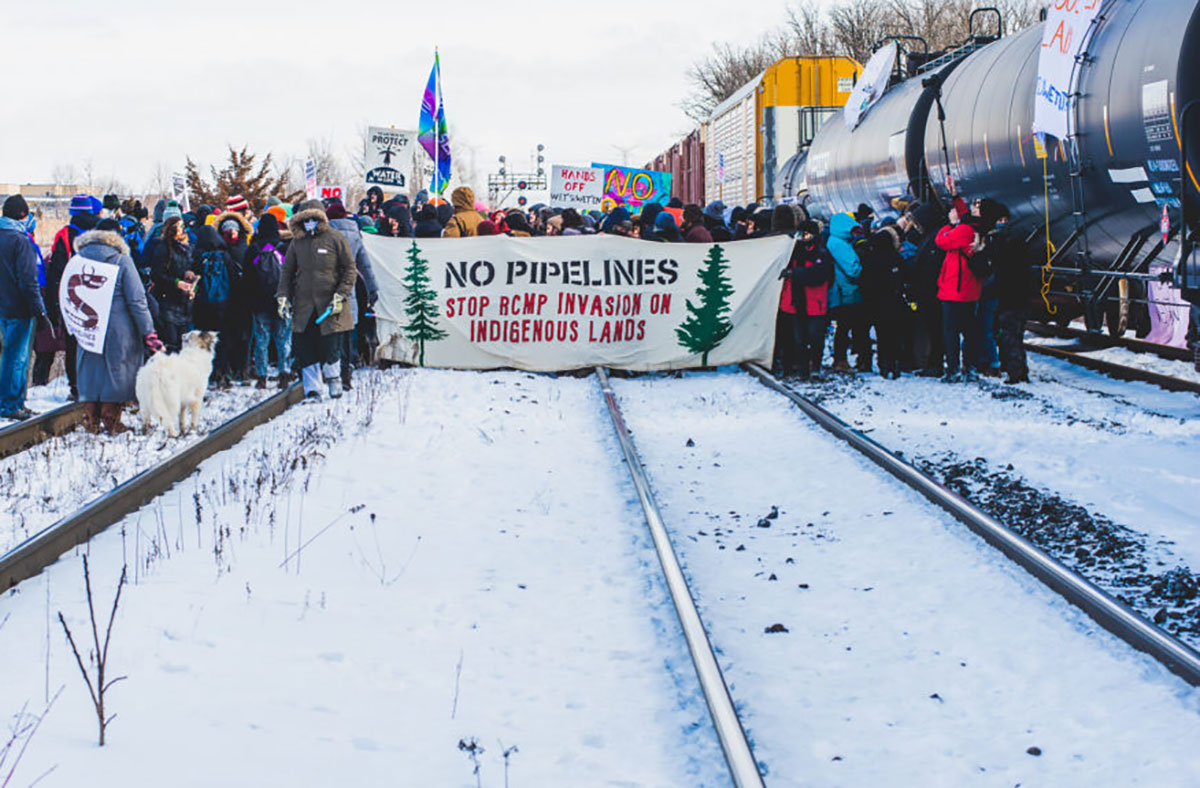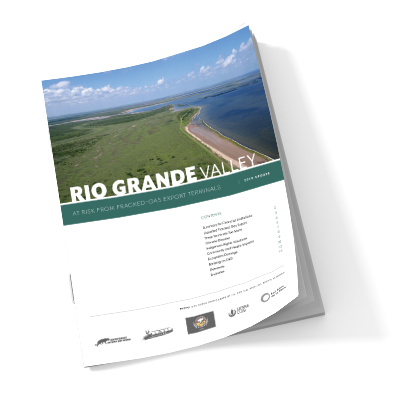The historic, people-powered movement to end our society’s dependence on fossil fuels has grown tremendously in recent years.
Frontline Indigenous communities and local and national environmental and climate justice organizations have joined forces, aligning strategies to take on three of the most powerful industries ever known: Big Oil and Gas, Big Banks, and Big Insurance. And together, we are starting to win on the scale that will be necessary if we are to maintain a livable planet for future generations.
Just a few years ago, massive fossil fuel expansion projects were routinely rubber-stamped for government permits and billions in financial loans. But RAN and our allies take on some of the biggest corporations on the planet — and we get results. Approval processes now take years, court challenges are relentless and budgets for these projects have skyrocketed. We have proven that people have the power to stop toxic pipelines and terminals, and there is no going back.
People power is stopping the KXL Pipeline.
For almost a decade, a powerful coalition of First Nations, ranchers and farmers, environmentalists, youth fighting for their future and people from all walks of life resisted the construction of the 1,179-mile pipeline that would flow 830,000 barrels of oil a day from the Alberta tar sands to Nebraska, eventually heading to refineries on the Gulf Coast.
The persistent blocks and countless delays against this pipeline is a testament to the power of grassroots organizing. It is the result of millions of people taking action to prioritize long-term climate justice over short-term corporate profit. From gathering petition signatures and making phone calls, to hosting vigils, concerts, and house parties, to engaging in direct action along the pipeline route and at the offices of key financial and political targets — communities will continue to rise up to stop this project.
The Dakota Access Pipeline Violates Indigenous Rights.
The historic uprising against the Dakota Access Pipeline (DAPL) project galvanized Indigenous resistance across the continent and inspired a precedent-setting solidarity action within the U.S. environmental movement. Thousands of people faced brutal government repression to draw a line in the sand and say ‘no more.’ No more will Indigenous rights be routinely trampled by short-sighted corporations and governments united by greed, racism, and impunity from the consequences of their actions.Alongside Indigenous leadership, RAN and our partners followed the money, demanded banks, like Citi, stop financing DAPL, and stop the cycle of banks financing of fossil fuels and violating indigenous rights.
And the fight isn’t over. A court ruling eventually shut down the pipeline pending an updated environmental assessment. There is an ongoing court battle over that ruling.
Communities are fighting fracked gas terminals in Texas.
One community facing three proposed Liquid Natural Gas (LNG) export terminals is in the Rio Grande Valley, Texas, near the Mexico border, where fossil fuel corporations plan to transform the coastal landscape of the Rio Grande Valley into an industrial fracked-gas export hub. These LNG terminals would emit thousands of tons of harmful pollutants into the air, impacting the health of nearby communities.
People are resisting the Line 3 Pipeline.
Enbridge’s Line 3 so-called “replacement” project is a proposal for a new pipeline that would cover more than 1,000 miles from Hardisty, Alberta to Superior, Wisconsin, transporting an average of 760,000 barrels of crude oil from the Alberta tar sands each day, with capacity for 844,000 barrels per day. The proposed new Line 3 pipeline poses a grave threat to Indigenous rights and culture.Its route would pierce the heart of the 1855 Treaty territory, where members of signatory Ojibwe bands retain the rights to hunt, fish, harvest wild rice, conduct religious ceremonies, and travel. Despite this and Minnesota’s Department of Commerce deeming the pipeline unnecessary, Enbridge has already started construction on either end of the new pipeline in Wisconsin and Canada. Indigenous People, Water Protectors, Giniw Collective, Honor the Earth, RAN, activists, and other partners, are calling for banks, like TD, Wells Fargo, JPMorgan Chase and MUFG, to defund Line 3 and any tar sands pipelines.
The Coastal GasLink pipeline is violating Wet’suwet’en rights.
At the end of May 2020, at least 26 banks from around the world took part in a US$4.7 billion project finance loan to fund the construction of the destructive, rights-violating Coastal GasLink pipeline.For the past ten years, the Wet’suwet’en have asserted their sovereignty to stop fossil fuel companies from trespassing on their lands. Under ‘Anuc niwh’it’en (Wet’suwet’en law), the five clans of the Wet’suwet’en have not provided the Free, Prior, and Informed Consent to Coastal Gaslink and its parent company TC Energy to do work on Wet’suwet’en territory.
Despite this, TC Energy is trying to bring a pipeline through their land with destructive fracked gas from northeast British Columbia to a massive proposed liquefied natural gas (LNG) terminal on the coast. They are being met with powerful resistance. People are mobilizing, and Wet’suwet’en resistance remains strong. RAN and allies will continue to support this movement and demand that financial institutions cut their ties with TC Energy, as the company tramples on Indigenous rights in order to ram through the dangerous pipeline.
People are demanding insurers stop the Trans Mountain Pipeline.
The existing Trans Mountain pipeline is a major environmental and public health hazard with a long history of disastrous spills. And yet, the Canadian government is plowing ahead with plans to expand this destructive pipeline, multiplying these risks tremendously.
For more than a decade, the expansion of Trans Mountain has been delayed in the face of powerful, Indigenous-led resistance on the ground and in the courts. Like many other pipelines on this list, Trans Mountain does not have the Free, Prior, and Informed Consent of Indigenous communities that are directly in the pipeline’s route.
Insurers are a key target because the risks of these pipelines are so great that by law, the current pipeline and its expansion are not able to transport any oil without insurance. If we can stop the insurance, we can stop the oil. We’re demanding that Trans Mountain’s insurers stop being complicit in the violation of Indigenous rights, the spread of COVID-19, and the desecration of sacred waterways and the global climate. Following pressure from Indigenous land and water protectors, RAN, and allies, three insurers committed to drop the pipeline in the summer of 2020. We’re turning up the heat on the remaining companies to follow suit.

